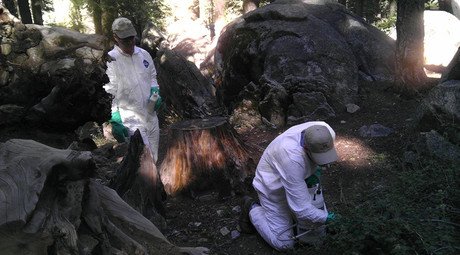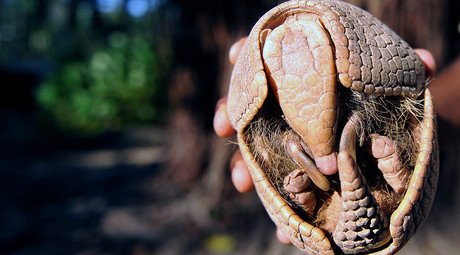Second Yosemite tourist may have plague, park remains open

A Georgia resident is being treated for possible plague infection after visiting Yosemite National Park in California. The park remains open, but visitors have been told to avoid contact with rodents, as they might have plague-bearing fleas.
The Centers for Disease Control and Prevention (CDC) is performing tests on the patient, who has not been identified. Georgia authorities are working with Yosemite officials and the US Forest Service to pinpoint where the person may have contracted the deadly disease, but said they visited California in early August, stopping at Yosemite and the Sierra National Forest.
This is the second visitor to Yosemite to contract the plague in two months. After a child from Los Angeles County was diagnosed in July, Yellowstone officials closed down the Crane Flat campground for a week, to apply a flea-killing treatment to the rodent burrows. The park announced it would be closing the Tuolumne Meadows campground last week, for the same treatment, after two infected squirrels were found dead at the site.
Rodents such as squirrels, chipmunks, prairie dogs, and rats sometimes have fleas that carry the plague bacterium, Yersinia Pestis. When the infested rodent dies, the fleas may jump to other warm-blooded hosts, including humans.
Yosemite National Park closes campsite after squirrels die of plague http://t.co/zvUL06wXvSpic.twitter.com/gEOfQc1NTW
— RT (@RT_com) August 16, 2015Both the California child and the Georgia patient are being treated with antibiotics, and expected to make a full recovery. According to the CDC, there have been eight cases of plague in the US this year, and two deaths, both in Colorado.
“Although the presence of plague has been confirmed in wild rodents over the past two weeks at Crane Flat and Tuolumne Meadows campgrounds in Yosemite, the risk to human health remains low,” the California Department of Public Health (CDPH) said in a statement. “Action to protect human and wildlife health by closing and treating campgrounds was taken out of an abundance of caution.”
CDPH director Karen Smith added the flea treatments should reduce the risk of human exposure to the plague, and urged campers to avoid all contact with wild rodents. Visitors to Yosemite are being told to avoid setting up camp near rodent burrows, while hikers need to wear long pants and use insect repellent to keep the fleas away.
Armadillos spread leprosy & other reasons canoodling with cute criters could kill you http://t.co/AccJ6f7p2Opic.twitter.com/v2oCFa4anm
— RT America (@RT_America) July 24, 2015The most common form of the plague is bubonic, during which patients usually show symptoms two to six days after coming into contact with the disease. Symptoms include fever, chills, weakness, and swollen lymph glands. The least common type is pneumonic, which infects the lungs and can be spread through coughing. Septicemic plague infects the blood, and is difficult to diagnose. Both lethal Colorado cases are believed to have been of the septicemic variety.














